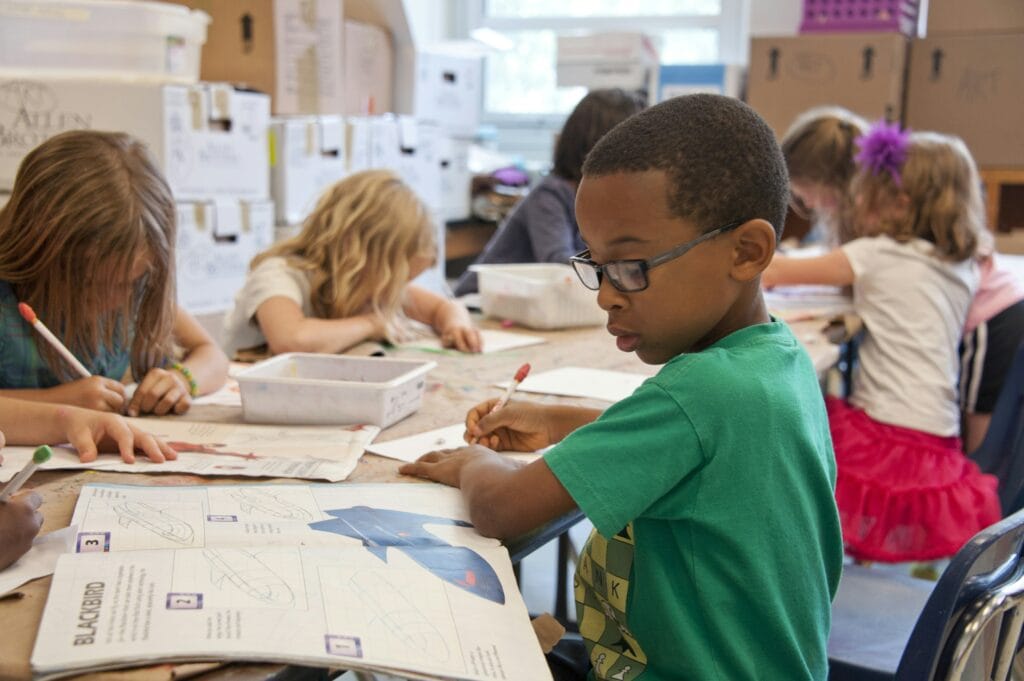In today’s fast-paced, technologically-driven world, it’s evident that our education system hasn’t kept pace with the rapid advancements and evolving needs of society. While innovations in technology, communication, and industry have transformed nearly every aspect of our lives, the traditional structures and methods of education have remained largely unchanged. This disconnect between the education system and the modern world raises important questions about how we can bridge the gap and better prepare students for success in the 21st century. Let’s delve into some key reasons why the education system has fallen behind and explore potential solutions to address this pressing issue.

1. Outdated Curriculum and Teaching Methods
One of the primary reasons why the education system hasn’t kept pace with the modern world is the prevalence of outdated curriculum and teaching methods. Many educational institutions continue to rely on traditional approaches to teaching and learning, emphasising memorisation, standardised testing, and passive learning over critical thinking, problem-solving, and practical skills development. This disconnect between classroom instruction and real-world applications leaves students ill-equipped to navigate the complexities of modern society and the demands of the workforce.
2. Slow Adoption of Technology
While technology has revolutionised nearly every aspect of our lives, its integration into the education system has been slow and inconsistent. Many schools lack access to modern technology tools and resources, while others struggle to effectively integrate technology into classroom instruction due to limited training and support for educators. As a result, students miss out on valuable opportunities to develop digital literacy skills, explore new learning pathways, and engage in innovative, technology-driven learning experiences that mirror real-world challenges and opportunities.
3. Lack of Focus on Critical Skills Development
In today’s rapidly changing world, the ability to adapt, innovate, and think critically is more important than ever. However, the traditional education system often prioritises memorisation and regurgitation of facts over the development of essential skills such as critical thinking, creativity, collaboration, and communication. As a result, students may graduate lacking the skills and competencies needed to succeed in an increasingly complex and dynamic global economy.
4. Resistance to Change
Another significant barrier to progress in the education system is resistance to change. Institutional inertia, bureaucratic red tape, and entrenched cultural norms can make it difficult to implement meaningful reforms and innovations that address the evolving needs of students and society. Educators, policymakers, parents, and other stakeholders may resist change due to fear of the unknown, concerns about job security, or attachment to traditional practices and ideologies. This resistance to change stifles innovation and perpetuates the status quo, preventing the education system from evolving to meet the demands of the modern world.
Bridging the Gap: Strategies for Reform
Addressing the gap between the education system and the modern world requires a multifaceted approach that involves stakeholders at all levels, from policymakers and educators to parents and students. Here are some key strategies for reform:
- Curriculum Reform: Update curriculum standards to prioritise essential 21st-century skills such as critical thinking, creativity, collaboration, and digital literacy. Integrate interdisciplinary and project-based learning experiences that promote real-world application of knowledge and skills.
- Teacher Training and Professional Development: Provide educators with ongoing training and support to effectively integrate technology, innovative teaching methods, and 21st-century skills development into their instruction. Foster a culture of lifelong learning and professional growth among teachers.
- Investment in Technology and Infrastructure: Allocate resources to ensure equitable access to modern technology tools and resources in schools. Invest in infrastructure upgrades, internet connectivity, and technology training for educators and students.
- Community Engagement and Collaboration: Foster partnerships between schools, businesses, community organisations, and government agencies to provide students with real-world learning experiences, mentorship opportunities, and access to resources and expertise.
- Empowering Student Voice and Agency: Empower students to take ownership of their learning and pursue their interests and passions. Encourage student-led projects, inquiry-based learning, and opportunities for self-directed learning and exploration.
- Policy and Advocacy: Advocate for policy reforms that support innovation, flexibility, and equity in education. Encourage policymakers to prioritise investment in education, support evidence-based practices, and remove barriers to innovation and change.

By embracing these strategies and working collaboratively to address the challenges facing the education system, we can create a more responsive, equitable, and future-ready educational experience for all students. It’s time to bridge the gap between the education system and the modern world and ensure that every student has the knowledge, skills, and opportunities they need to thrive in the 21st century and beyond.



13 comments
I like the modern education system because of its interactive and innovative approach to learning. It provides access to a wide range of resources that help expand knowledge and skills. Many cool services, such as platforms for online tutors, often I have used essay writer services online cheap and other writing tools that greatly facilitate the learning process. They allow students to get quality help and support, which improves their academic performance. These services make education more accessible and effective for everyone
Studying at the medical faculty is a real test, especially when it comes to writing papers. One day I was looking for sample essays to understand how to format my paper and found a handy resource. There are many useful nursing papers examples on this site that helped me navigate and write my own essay. This is a great resource for anyone looking to improve their writing skills.
Students in Sydney often face the challenge of managing multiple assignments while maintaining academic excellence. With the rigorous demands of universities like the University of Sydney and UNSW, it’s essential to get the right support. Assignment help Sydney services provide professional guidance, ensuring students meet deadlines and achieve higher grades. These services cater to various academic needs, from essays to research papers, making them a valuable resource for students who want to improve their performance and reduce academic stress.
In fact, it is the outdated teaching methods that have been turned into focus by such an article, as they leave students unprepared for the real challenges of life. The gap is critical, with application mainly practical, as in accounting. Accounting assignment help bridges this gap and provides students with expert guidance to develop real-life skills, making them all the more ready for the modern financial challenges and careers.
Taxlegit provides seamless sole proprietorship registration services, helping entrepreneurs quickly establish their businesses. Our expert team ensures a smooth process, from documentation to legal compliance, making it easy to start your sole proprietorship without hassle. We offer personalized support to get your business registered efficiently and in compliance with regulations.
The 12A and 80G registration process online can be daunting, but NGO Expert simplifies it for you! Their expert guidance ensures a smooth application experience, helping your organization gain the necessary tax exemptions and recognition. With their support, you can focus more on your mission and less on paperwork. Highly recommend their services for any NGO!
Hello, I’m Berry! I discovered that BestValueColleges is a fantastic resource for students and families looking for affordable, high-quality best value for education . The site offers a wealth of information on various colleges and universities, helping prospective students make well-informed decisions about their academic future. It provides rankings and comparisons based on key factors such as tuition costs, financial aid options, academic programs, and overall value, making it easier to find schools that deliver the best return on investment. Additionally, the platform offers helpful advice on scholarships, grants, and financial planning, making it an invaluable tool for those seeking to balance quality education with affordability. It’s a must-have guide for future students.
For students, plagiarism can result in academic penalties, ranging from failing grades to expulsion. Using a plagiarism checker https://assignmentmaster.com/free-plagiarism-checker ensures that your work adheres to academic integrity standards.
Random Animal Generator:https://animalgenerator.org/
Types of reliability include test-retest (consistency over time), inter-rater (agreement between observers), parallel-forms (equivalent test versions), and internal consistency. Understand each to meet assignment standards and mentor expectations in research.
Types of Reliability in Research: A Student’s Guide
Great Post, Airo Shot Blast Equipments stands out for its robust engineering and affordable shot blasting machines. Their machines improve surface preparation quality and extend the lifespan of metal components.
Juggling a heavy course load and a personal life can feel like a losing battle. When the deadlines start piling up, myassignmenthelp.services offers a reliable lifeline. By providing
professional online assignment help, they take the pressure off your shoulders, ensuring your essays and projects are top-tier while you reclaim your free time.